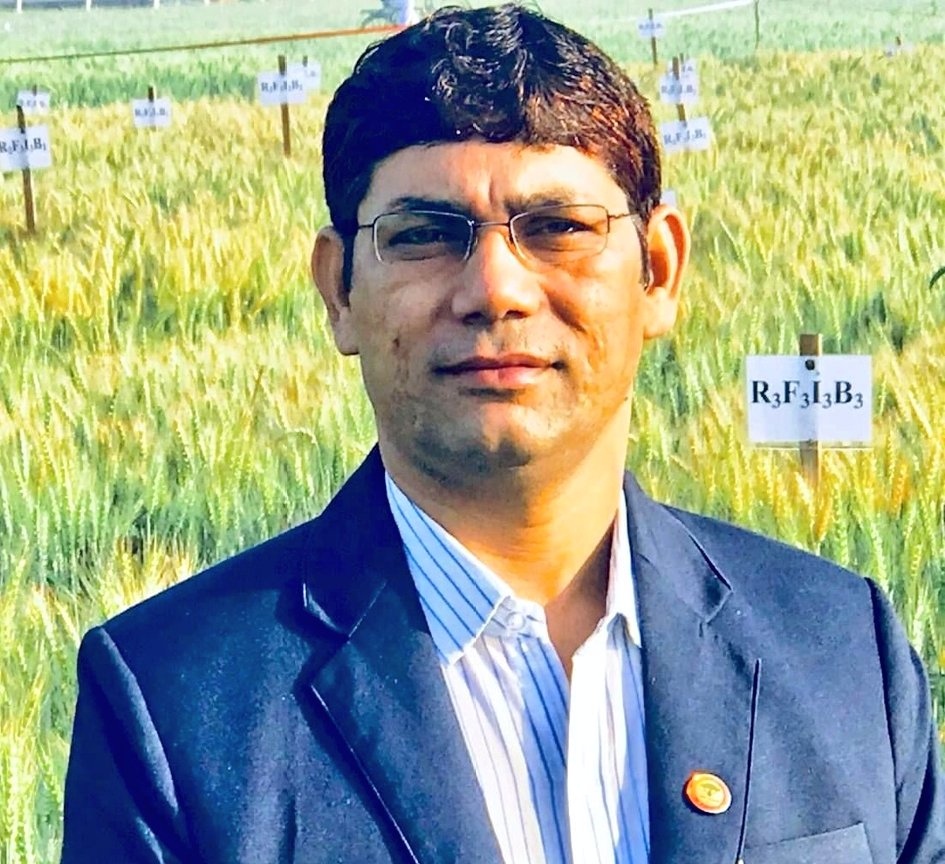
Parali to Improve Field Fertility & Reduce Air Pollution, thanks to BHU Research
Varanasi. The Institute of Agricultural Sciences of Kashi Hindu University (BHU) has made a revolutionary discovery that can change the way farmers deal with crop residue. Agricultural scientist Dr. Ram…

Varanasi. The Institute of Agricultural Sciences of Kashi Hindu University (BHU) has made a revolutionary discovery that can change the way farmers deal with crop residue.
Agricultural scientist Dr. Ram Swaroop Meena and his team have found a way to convert stubble into coal, which can be used to increase the fertility of the fields.
This breakthrough discovery has the potential to reduce air pollution caused by stubble (parali) burning and increase crop yield.
The technology, which was patented in 2020, involves controlled burning the stubble in a pit and using two pipes for ventilation. The initial smoke is released through one pipe while the other pipe allows oxygen to enter the pit. The stubble is left to burn for some time until it becomes biochar (a type of charcoal).
The burning of farm residue is a significant contributor to air pollution in northern India, which can have a severe impact on the quality of the air. This practice, along with emissions from vehicles, can greatly affect the Air Quality Index (AQI) in regions such as the national capital and its surrounding areas.

According to Dr. Meena, this process can convert 100 kg of stubble into 20 kg of biochar and it can be done at a very low cost.
When the biochar is mixed into the field, it will not leave the field, unlike traditional methods such as burning or composting. In this way, the farmer is effectively absorbing carbon from the atmosphere and returning it to the land. This will increase the yield of crops and improve the overall health of the soil.
The government of India has acknowledged the quality of this research and has given two projects to Dr. Meena and his team with a three-year time frame to develop this technology further.
The team is currently conducting experiments on wheat crop on a piece of land in BHU's Agro Farm. Plot-wise samples of wheat crop are being used to study the impact of biochar on crop yield.
The biggest advantage of this technology is that it eliminates the need for chemical fertilizers and improves the quality of grains. Additionally, farmers can become carbon creditors by selling carbon credits based on the weight of stubble and biochar. Dr.Meena believes that this technology will become quite common in the future.
The findings of this research will be presented to the government after the completion of the crop. The team is optimistic that this technology will have a positive impact on the environment and the farming community.
- Agricultural scientistAgro Farmair pollutionAir Quality IndexAQIbanaras hindu universityBHUBHU Researchbiocharcarbon creditorscarbon creditsCharcoalchemical fertilizerscoalcontrolled burningcrop residuecrop yieldDr. Ram Swaroop Meenafarm residuefarming communitygovernment of IndiaImprove Field FertilityInstitute of Agricultural Sciencesnational capitalnorthern IndiaParalipitplot-wise samplesReduces Air Pollutionstubblesurrounding areasvaranasiventilationwheat crop


